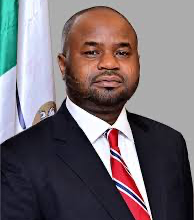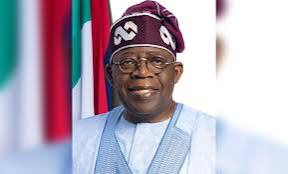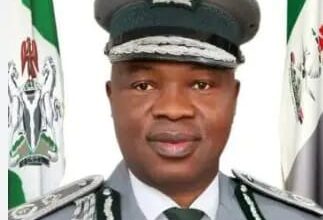How Digital Economy Remittances Fuel Growth In Nigeria

By Oxford Business Group
Nigerian citizens went to the polls on February 25, 2023. Elections were also held for the Senate and the House of Representatives on the same day, as well as for 28 gubernatorial positions and state assemblies in all 36 states. It was the seventh general election since the return of civilian rule in 1999.
Elections
According to Oxford Business Group, the election roster was varied, with both the All Progressives Congress (APC) and Peoples Democratic Party (PDP) overcoming periods of political division to select their candidates. The incumbent APC selected Bola Tinubu, former governor of Lagos State, as their candidate, while the PDP selected Atiku Abubakar, former vice-president. Polls in early 2023 showed the Labour Party’s Peter Obi polling ahead of his rivals. Some international observers saw in his mandate an opportunity for political and economic renewal. Obi’s electoral promises included expanding and better equipping security forces, boosting investment in education, making business-friendly economic reforms, enhancing water transport, reducing crime and unemployment rates and ending crude oil theft.
Despite polling in third place, the veteran politician Abubakar running for the opposition PDP was expected to benefit from the absence of Muhammadu Buhari, who is retiring from the presidency. As a northerner himself, Abubakar was expected to pick up crucial votes in the relatively under-polled north which offered the opportunity to cross the threshold to the presidency. Abubakar’s platform included large-scale privatisation, the withdrawal of fuel subsidies following a review and a unified exchange rate, which would be coordinated with the central bank. His promise to introduce state policing demonstrated the central government’s commitment to adhering to the security agenda.
Presidential and legislative elections were followed by gubernatorial and state legislative elections on March 18 of the same year. The incoming president faces challenges including high youth unemployment and inflation, a growing debt burden and ensuring that economic growth can accommodate the current rate of demographic expansion.
In March 2023 the Independent National Electoral Commission declared Tinubu the winner of the presidential election. According to the commission, he won the highest number of votes, and 25% of votes cast in 30 states, satisfying the constitutional requirements to be president. Abubakar and Obi finished second and third, respectively. While the inauguration of the new president took place on May 29, 2023, both opposition leaders filed a petition seeking to annul the presidential result, sparking the prospect of protracted election litigation.
Constitutional Government
The development of the constitutional framework took many years and saw significant changes over the course of the four republican constitutions the country has witnessed since its independence in 1960. A Westminster-style parliamentary government was in place from 1963, the year in which the Mid-Western Region was added to the three regions Nigeria had been divided into after 1960. The provinces, a legacy of colonial times, remained contentious until their abolition in 1967, as Nigeria descended into conflict following the 1966 military coup.
Present-day Nigeria is made up of 36 states and a Federal Capital Territory (FCT), and the current constitution is the culmination of an almost half-century-long undertaking to reach a political compromise that satisfies the most parties. Indeed, constitutional shifts were common in post-independence politics, which included intermittent periods of military rule.
This is underlined by the fact that the current constitution of the Fourth Republic marks a clear break with the military-drafted Third Republic. Having evolved away from the Westminster-style system of its colonial and early post-independence times, it follows a US-style presidential model, mirroring the Second Republic’s constitution created during the brief civilian coalition government in 1979 – which was subverted by the military following the 1983 coup. Since the transition to civilian government in 1999 the Fourth Republic’s constitutional framework has been upheld and undergone numerous amendments, with the most recent in 2022.
Executive Branch
The Nigerian constitutional system operates via a system in which the presidency is endowed with extensive powers. The president oversees the executive branch of the federal government and is elected through universal suffrage. Each term is capped at four years, and one person can serve a maximum of two terms in office. The president is responsible for the enforcement of federal laws and heads the Nigerian Armed Forces. The presidency’s prerogative also consists of appointing several civil servants including executive, regulatory, judicial and diplomatic officers.
Each of Nigeria’s 36 states is represented in the Cabinet or the Federal Executive Council. The Cabinet’s members are appointed by the president and include the heads of all of the 26 federal ministries, which oversee sectors from power and steel to parastatals, or government-owned corporations. The tasks of the federal ministries fall under the purview of the civil service, which is accountable to a minister, who is also appointed by the president. In addition, the president is empowered to appoint Supreme Court judges conditional on approval from the Senate and recommendations from the National Judicial Council (NJC). The constitution allows the president to ratify or veto legislation. In addition, they assume primary responsibility for foreign policy.
Legislature
The legislative branch is represented by the National Assembly, a bicameral legislature that consists of a lower chamber, the House of Representatives; and the higher chamber, the Senate. The upper chamber is chaired by the president of the Senate. This position was occupied by Ahmed Ibrahim Lawan as of early 2023. The Senate consists of 109 members; each state elects three senators, while the FCT elects one, using the first-past-thepost electoral system. Senators serve four-year terms and are not restricted by term limits. The Senate plays a crucial role in the ratification of presidential appointments and the introduction of bills. In addition, it must consent to all treaties with foreign governments and adjudicate all impeachments.
The 360 members of the House of Representatives are elected through a first-past-the-post system in constituencies and serve four-year terms, with elections held concurrently with those for the presidency. The House of Representatives is presided over by the speaker, a role occupied by Femi Gbajabiamila since 2019. Aside from law-making and the resolution of disputes, the lower chamber also plays an important role in the checks-and-balances system through its oversight functions and committees which examine government policy and appointments. The bicameral National Assembly may vote to impeach the president or vice-president if a two-thirds majority is achieved in both chambers.
Judiciary
Four distinct legal traditions exist within the Nigerian judicial system: English law, common law, and customary and sharia law. Customary courts tend to be more prevalent in the Christian-majority southern regions, while sharia law courts are predominantly a feature in the northern parts of the country. In a few cases, court systems in diverse states may overlap, such as in Lagos.
The court system is divided into two branches: federal and state courts. At the federal level, the Supreme Court serves as the final authority for adjudication and is composed of a chief justice and 12 associate justices. The president appoints the chief and associate justices on advice from the NJC. As of early 2023 the chief justice was Olukayode Ariwoola, who was appointed in June 2022.
The Court of Appeal rules on appeals from district courts and sometimes other federal courts. At least three judges are expected to be well versed in sharia law and customary law. Matters relating to the interpretation and enforcement of the constitution are undertaken by the Federal Constitutional Court. State courts, such as the High Court of a state, a customary Court of Appeal or a sharia Court of Appeal, are part of the local court system.
State & Local Levels
There are three levels of government: the federal government, state governments and local governments. Every state has a unicameral House of Assembly, with the number of members set at three times the number the state has in the National Assembly. A state’s executive branch is led by the governor, whose ability to stand for re-election is capped at two terms and who is aided by a state executive council. The governor is entitled to select the members of the executive council with the House of Assembly’s approval.
States also have their own ministries, which are headed by commissioners. States subdivide into 774 local government areas (LGAs), which have a chairman as chief executive and councillors who are themselves elected from the wards making up the LGA. The LGAs are vested with some tax-collection powers, licensing, registration and other minor administrative duties. Public services which fall under the purview of the LGAs include the maintenance of roads, waste collection, street cleaning and the upkeep of public transport.
Diaspora Politics
Nigeria has a powerful and well-connected diaspora which resides mainly in Canada, Italy, the UK and the US. Diaspora remittances are a major source of development finance and foreign exchange, contributing more to GDP than oil revenue. Indeed, while oil revenue, net of cost, was $5.97bn, $2.12bn and $7.19bn in 2019, 2020 and 2021, respectively, remittances were around $23.8bn, $17.2bn and $19.5bn, respectively, in those years. Remittances are likely to increase as the amount of human capital Nigeria exports rises.
Moving forwards, a key objective is increasing the percentage of invested remittances from the current level of around 30%. Additional targets include establishing diaspora foundations as well as encouraging diasporas to serve as channels for private flows of revenue for potential investors who are looking to enter the local market.
Digital Pioneer
Nigeria was the first country on the continent to pioneer the use of a central bank digital currency, the eNaira. A digital currency provides an opportunity to increase transaction volume, improve the efficiency of payments, expand the volume of remittances and boost financial inclusion. However, despite widespread government campaigns, uptake among citizens has been relatively slow since the launch of the initiative in October 2021 (see Banking chapter). Reasons for this include concerns regarding cybersecurity and operational risks, as well as barriers such as the requirement to have a bank verification number, which discourages many Nigerians from using the service.
Expanding access to the eNaira aligns with the general objective of contributing to the development of the digital economy. Digital technology is a crucial pillar supporting the growth of the financial sector, which expanded by 10.1% in 2021 following a growth rate of 9.4% in 2020.
In April 2022 the Nigerian Communications Commission outlined Aspire 2024, the new iteration of its Strategic Management Plan 2020-24. It consists of eight pillars to drive the growth of the digital economy. Initiatives include more effective regulation conducive to further development, improving digital literacy and skills, developing fixed and mobile infrastructure to deepen broadband penetration, and strengthening public confidence in digital technologies, among others. These tie into the government’s broader objective to provide greater access to the digital economy and create 100m jobs by 2030.
Digital Talent
The expansion of Africa’s digital ecosystem is underpinned by a young, rapidly growing and increasingly educated population, alongside a fast pace of urbanisation. The combination of these factors is likely to contribute to a thriving digital economy and lift many citizens out of poverty. According to a 2020 report by the World Bank and the GSMA, an international telecoms trade body, the proportion of households below the extreme poverty line declined by around 4 percentage points after one year of mobile broadband coverage and by some 7 percentage points after two or more years.
Cities provide clusters of expertise and job opportunities which in turn drives consumer spending as the job pool expands. There are an estimated 700,000 professional software developers in Africa, with around 85,000 of those in Nigeria. Of these, 77% are informally educated, usually through self-taught courses, online courses or informal training provided by large international organisations. A crucial challenge for the country is expanding and improving the quality of science, technology, engineering and mathematics education while reducing so-called brain drain by providing educated young Nigerians with employment and training opportunities or empowering them to start their own businesses (see Health & Education chapter).
Outlook
Nigeria’s recovery picked up pace in 2021, with growth reaching 3.6% after a contraction of 1.8% in 2020. However, the IMF projects that the rate of expansion will ease to 3.2% in 2023 and 3% in 2024, reflecting the continued global slowdown. Some reasons attributed to this downward trend include high inflation, persistent effects of the pandemic and geopolitical challenges. Recovery in the global economy would stand to have a positive impact on Nigeria’s economic development, although domestic challenges are also a factor and dominated the debate in the run-up to the elections.





